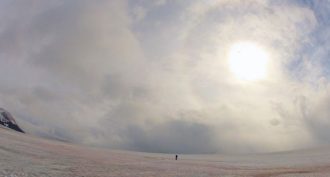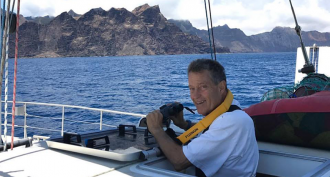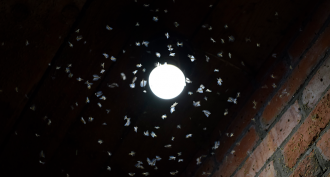Earth
-
 Earth
Earth‘Watermelon’ snow is helping melt glaciers
Microbes that paint snow pink are accelerating the melting of ice fields in Alaska.
-
 Chemistry
ChemistryScience works to save a salty world treasure
Poland’s 700-year old salt mine, just outside Kraków, not only is a cultural art treasure, but also an active research site for geologists, chemists and more.
-
 Environment
EnvironmentAnalyze This: Not all races saw equal improvements in this air pollutant
Levels of one U.S. air pollutant, NO2, have dropped over time. But neighborhoods with predominantly non-white residents saw smaller improvements than did those that were mostly white.
-
 Earth
EarthMiddle-school scientists take home big prizes
Top finalists in the 2017 Broadcom MASTERS competition shared awards worth $100,000.
By Sid Perkins -
 Tech
TechIs weather control a dream or nightmare?
Weather control is largely fiction for now, although people are unintentionally changing their weather. And that might not be a good thing.
-
 Science & Society
Science & SocietyExplainer: Weather and weather prediction
The sun and Earth combine to create the planet’s weather systems. And science is getting good at predicting what they’ll do.
-
 Environment
EnvironmentAir pollution takes a toll on solar energy
Air pollution can rob the light needed for solar panels to make electricity. In India and China, the percent solar energy losses can reach double digits.
-
 Climate
ClimateDid Maria set another U.S. rainfall record?
Weather scientists are investigating whether Maria set another U.S. record for flooding rainfalls.
-
 Oceans
OceansExpedition finds South Pacific plastic patch bigger than India
A giant, floating ‘garbage patch’ in the South Pacific off Chile’s coast is mostly tiny bits of plastic.
By Ilima Loomis -
 Environment
EnvironmentLight pollution can foil plant-insect hookups
An experiment in remote European meadows shows that light pollution at night can affect the pollination of flowers — even into sunlight hours.
By Susan Milius -
 Climate
ClimateScientists Say: Weather bomb
Weather doesn’t just affect the air. Huge storms can send waves of pressure through the Earth as well.
-
 Climate
ClimateHere’s why Irma caused some coastal water to temporarily go missing
The first sign of an impending storm surge — and serious danger — may be the sudden, wholesale retreat of water from coastal beaches.